Peugeot 408 vs Toyota C-HR - Differences and prices compared
Compare performance (225 HP vs 223 HP), boot space and price (35100 £ vs 29100 £ ) at a glance. Find out which car is the better choice for you – Peugeot 408 or Toyota C-HR?
Costs and Efficiency:
Price and efficiency are often the first things buyers look at. Here it becomes clear which model has the long-term edge – whether at the pump, the plug, or in purchase price.
Toyota C-HR has a distinct advantage in terms of price – it starts at 29100 £ , while the Peugeot 408 costs 35100 £ . That’s a price difference of around 5983 £.
Fuel consumption also shows a difference: Toyota C-HR manages with 0.80 L and is therefore clearly more efficient than the Peugeot 408 with 2.70 L. The difference is about 1.90 L per 100 km.
As for electric range, the Peugeot 408 performs significantly better – achieving up to 455 km, about 387 km more than the Toyota C-HR.
Engine and Performance:
Under the bonnet, it becomes clear which model is tuned for sportiness and which one takes the lead when you hit the accelerator.
When it comes to engine power, the Peugeot 408 has a minimal edge – offering 225 HP compared to 223 HP. That’s roughly 2 HP more horsepower.
In acceleration from 0 to 100 km/h, the Peugeot 408 is minimal quicker – completing the sprint in 7.20 s, while the Toyota C-HR takes 7.40 s. That’s about 0.20 s faster.
In terms of top speed, the Peugeot 408 performs noticeable better – reaching 233 km/h, while the Toyota C-HR tops out at 180 km/h. The difference is around 53 km/h.
Space and Everyday Use:
Cabin size, boot volume and payload all play a role in everyday practicality. Here, comfort and flexibility make the difference.
Both vehicles offer seating for 5 people.
In curb weight, Toyota C-HR is slight lighter – 1505 kg compared to 1544 kg. The difference is around 39 kg.
In terms of boot space, the Peugeot 408 offers somewhat more room – 536 L compared to 447 L. That’s a difference of about 89 L.
In maximum load capacity, the Peugeot 408 performs noticeable better – up to 1583 L, which is about 428 L more than the Toyota C-HR.
When it comes to payload, Peugeot 408 slight takes the win – 456 kg compared to 425 kg. That’s a difference of about 31 kg.
Who wins the race in the data check?
The Toyota C-HR sits just ahead overall in the objective data comparison.
This result only shows which model scores more points on paper – not which of the two cars feels right for you.
Costs and Consumption
View detailed analysis
Engine and Performance
View detailed analysis
Dimensions and Body
View detailed analysis

Toyota C-HR
Peugeot 408
The Peugeot 408 blends a coupe-like roofline with practical sensibility, delivering striking looks and a surprisingly airy, premium-feeling cabin. On the road it prefers comfort and poise over manic thrills, making it a smart, stylish choice for buyers who want something a bit different from the usual family hatchback.
details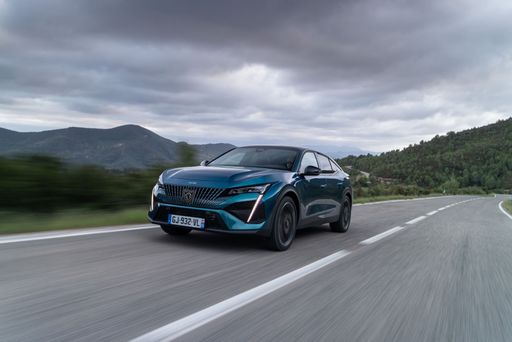
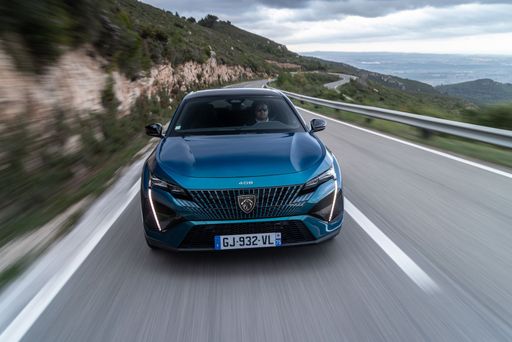
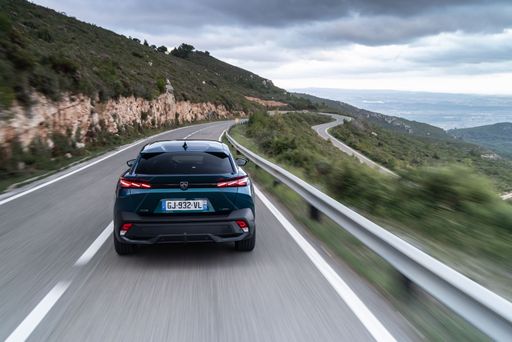
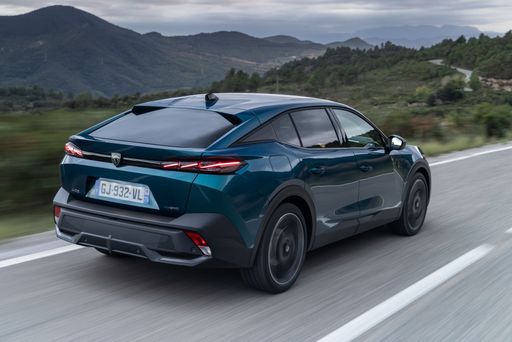
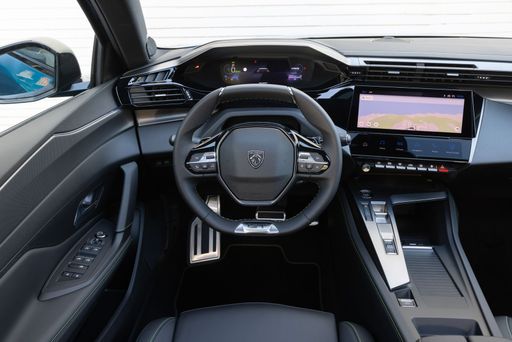
Toyota C-HR
The Toyota C-HR cuts a striking figure with its angular styling and coupe-like profile, so you’ll never go unnoticed in the supermarket car park. It balances everyday practicality with a nimble, city-friendly personality, making routine commutes feel a touch more fun without asking for forgiveness.
details




Costs and Consumption |
|
|---|---|
|
Price
35100 - 48000 £
|
Price
29100 - 42800 £
|
|
Consumption L/100km
2.7 - 5.1 L
|
Consumption L/100km
0.8 - 5.1 L
|
|
Consumption kWh/100km
14.80 kWh
|
Consumption kWh/100km
-
|
|
Electric Range
79 - 455 km
|
Electric Range
68 km
|
|
Battery Capacity
58.20 kWh
|
Battery Capacity
-
|
|
co2
0 - 114 g/km
|
co2
17 - 115 g/km
|
|
Fuel tank capacity
42 - 52 L
|
Fuel tank capacity
43 L
|
Dimensions and Body |
|
|---|---|
|
Body Type
SUV
|
Body Type
SUV
|
|
Seats
5
|
Seats
5
|
|
Doors
5
|
Doors
5
|
|
Curb weight
1544 - 1879 kg
|
Curb weight
1505 - 1755 kg
|
|
Trunk capacity
471 - 536 L
|
Trunk capacity
350 - 447 L
|
|
Length
4687 mm
|
Length
4362 mm
|
|
Width
1848 mm
|
Width
1832 mm
|
|
Height
1478 mm
|
Height
1558 - 1564 mm
|
|
Max trunk capacity
1528 - 1583 L
|
Max trunk capacity
1076 - 1155 L
|
|
Payload
371 - 456 kg
|
Payload
375 - 425 kg
|
Engine and Performance |
|
|---|---|
|
Engine Type
Electric, Petrol MHEV, Plugin Hybrid
|
Engine Type
Full Hybrid, Plugin Hybrid
|
|
Transmission
Automatic
|
Transmission
Automatic
|
|
Transmission Detail
Reduction Gearbox, Dual-Clutch Automatic
|
Transmission Detail
CVT
|
|
Drive Type
Front-Wheel Drive
|
Drive Type
Front-Wheel Drive, All-Wheel Drive
|
|
Power HP
145 - 225 HP
|
Power HP
140 - 223 HP
|
|
Acceleration 0-100km/h
7.2 - 9.4 s
|
Acceleration 0-100km/h
7.4 - 9.9 s
|
|
Max Speed
160 - 233 km/h
|
Max Speed
175 - 180 km/h
|
|
Torque
230 - 360 Nm
|
Torque
-
|
|
Number of Cylinders
4
|
Number of Cylinders
4
|
|
Power kW
107 - 165 kW
|
Power kW
103 - 164 kW
|
|
Engine capacity
1199 - 1598 cm3
|
Engine capacity
1798 - 1987 cm3
|
General |
|
|---|---|
|
Model Year
2024 - 2025
|
Model Year
2024 - 2025
|
|
CO2 Efficiency Class
A, C, B
|
CO2 Efficiency Class
C, B
|
|
Brand
Peugeot
|
Brand
Toyota
|
What drivetrain options does the Peugeot 408 have?
The Peugeot 408 is offered with Front-Wheel Drive.




